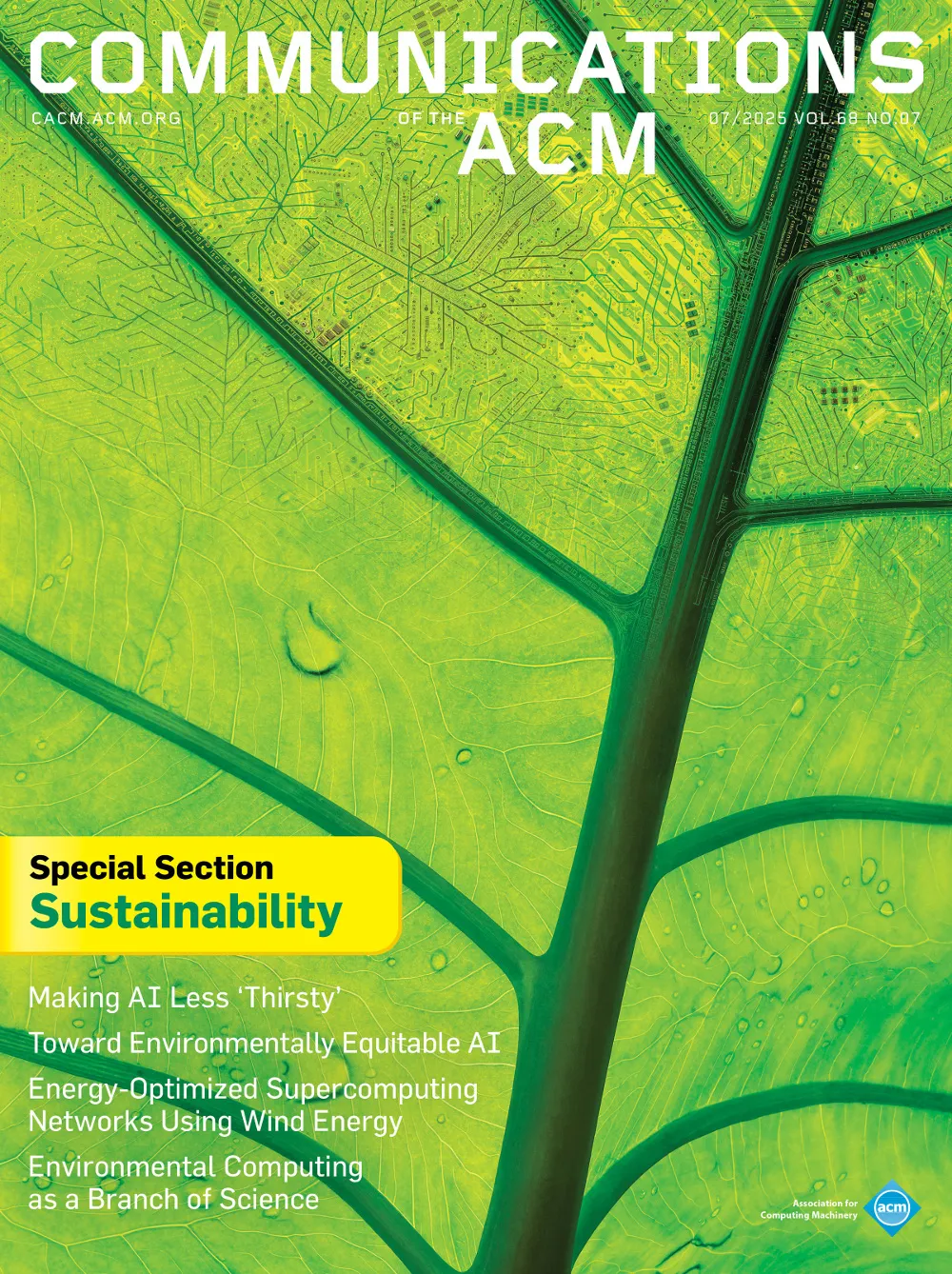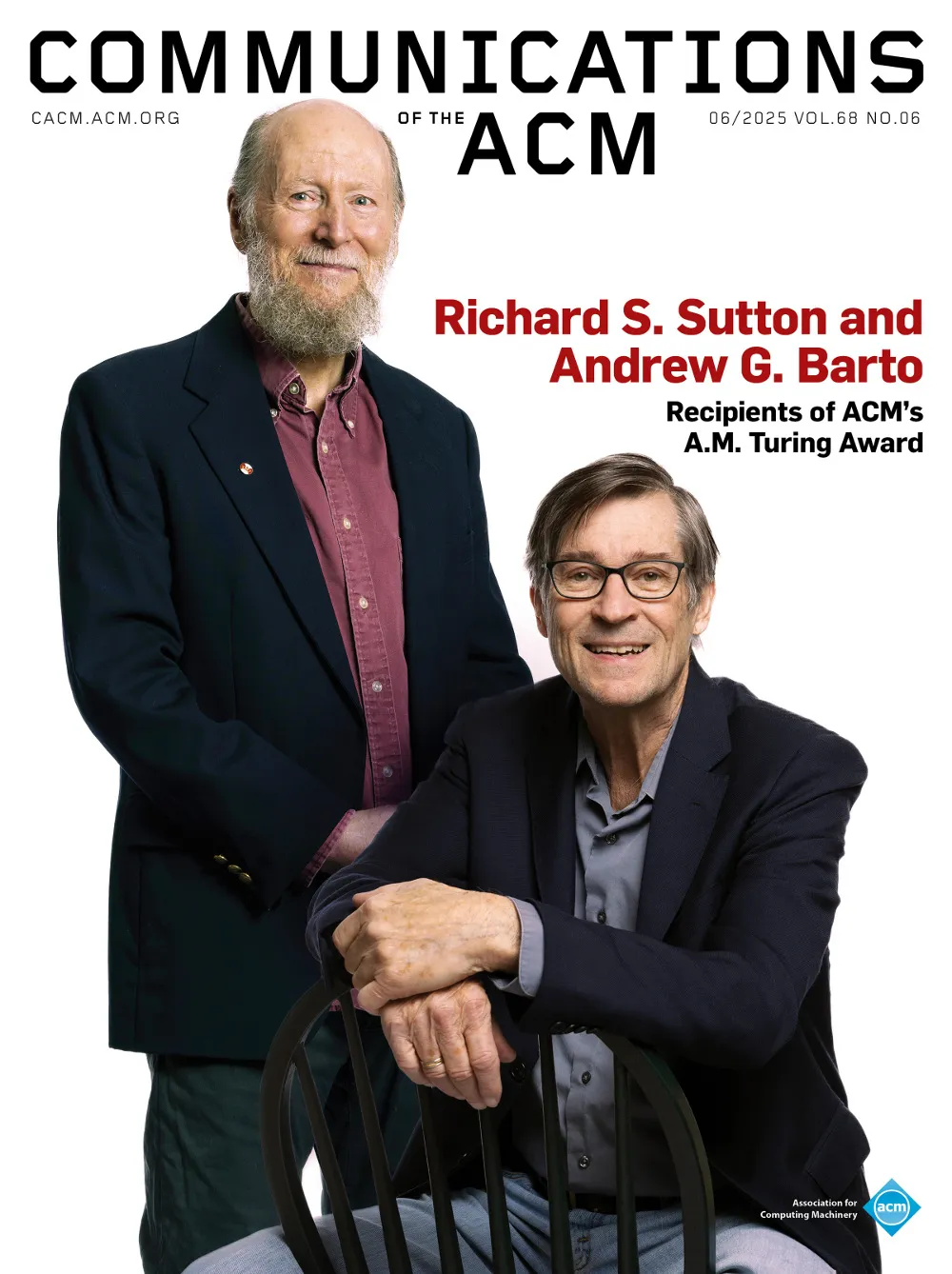February 1973 - Vol. 16 No. 2

Features
Representation of contours and regions for efficient computer search
A novel computer-searchable representation for the three basic pictorial features, contour maps, region coverage, and line structures, is described. The representation, which has practical storage requirements, provides a rapid means of searching large files for data associated with geometric position as well as with attribute value. An application of this representation to handling terrain information illustrates its utility. The algebraic properties of the data structure make it computationally easy to determine whether a point lies within a closed boundary; compute the area contained by a closed boundary; generate the closed boundary representing the union or intersection of two closed boundaries; and determine the neighboring boundaries to a point and the minimum distances between them and the point.
The use of grammatical inference for designing programming languages
Both in designing a new programming language and in extending an existing language, the designer is faced with the problem of deriving a “natural” grammar for the language. We are proposing an interactive approach to the grammar design problem wherein the designer presents a sample of sentences and structures as input to a grammatical inference algorithm. The algorithm then constructs a grammar which is a reasonable generalization of the examples submitted by the designer. The implemention is presently restricted to a subclass of operator precedence grammars, but a second algorithm is outlined which applies to a larger class of context-free grammars.
A theory of discrete patterns and their implementation in SNOBOL4
The notion of a discrete pattern is formalized and certain properties deduced. A pattern is shown to be a generalization of a formal language. Algorithms for implementing the kinds of patterns in SNOBOL4 are given. The general approach is to create, in-so-far as possible, a bottom-up parse from a top-down specification.
Automatic errorbounds for simple zeros of analytic functions
The Cauchy-Ostrowski theorem on convergence of Newton iterates for an analytic function in one variable is extended to include computational errors using complex interval arithmetic. Several numerical examples are given for polynomials with real and complex roots and one example for the Bessel function of the first kind.
Reducing the retrieval time of scatter storage techniques
A new method for entering and retrieving information in a hash table is described. The method is intended to be efficient if most entries are looked up several times. The expected number of probes to look up an entry, predicted theoretically and verified by Monte Carlo experiments, is considerably less than for other comparable methods if the table is nearly full. An example of a possible Fortran implementation is given.
A software design and evaluation system
A critical failure of current software system design and implementation methodology is that the performance of a proposed design is not evaluated before it is actually implemented. In this paper the reasons for this failure are explored, and a new methodology which overcomes many of the difficulties is proposed. A system which integrates performance evaluation with design and implementation is described. This system is based on a simple, high level language which is used to describe the evolving system at all stages of its development. The source language description is used as direct input to performance analysis and simulation routines. Using the performance information obtained from these routines as feedback, the problems which adversely affect performance are detected early enough so that they can be corrected without costly major reimplementation of the proposed system.
An overview of the ISPL computer systems design
This paper explores the advantages of the concurrent design of the language, operating system, and machine (via microcode) to create an interactive programming laboratory. It describes the synergistic effect that the freedom to move and alter features from one of these domains to another has had on the design of this system (which has not been implemented). This freedom simplified both incremental compilation and the system's addressing structure, and centralized the communication mechanisms enabling the construction of hierarchical subsystems. It also suggested an important new concept for operating systems: separation of the scheduling from the maintenance functions in resource allocation. This separation enables incorporation of new scheduling algorithms (decision of what to do) without endangering the system integration (correctly performing the scheduling decisions).



